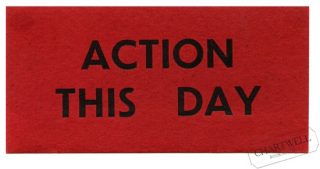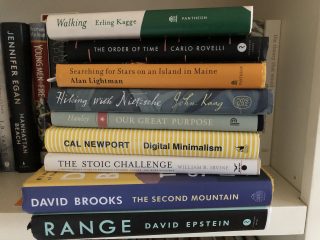The Silicon Valley investor and free-thinker Naval Ravinkant has a saying: “Life is a single player game.” It’s a good reminder because so much of what we’re exposed to by our culture reinforces the view that life is a multi-player game. We feel strong social pressure to constantly compare ourselves to others. We’re programmed, at an early age, to check the score – what college we attend, how much money we make, the size of our house, the car we drive, the vacations we take – and when others have a higher score, we feel behind or inadequate.
I joined the cross-country team in high school. With only a few weeks of training I entered my first 5,000 meter race and promptly finished last on my team at 19:40. I felt like a failure. Finishing last doesn’t feel good. Looking back on it now, I’m impressed. It translates into a 6:10 mile pace. Not bad for my first race, but at the time I was consumed with comparing myself to the best runner on our team. Never mind he was a senior with years of experience under his belt. What got under my skin was the fact that he consistently finished under 17 minutes. There was even a runner in the state who ran sub-16 minutes. He bothered me too.
At my second meet, with a few more weeks of training under my belt, I was determined to make my move. Our coach positioned himself with a stopwatch at the top of a long rise a mile into the race. The plan was to call out our mile splits as we passed by. When the gun went off I quickly moved to the front of the pack. I felt strong. My confidence grew with every stride. I started to put some distance between myself and the main pack. I’ll never forget the look of surprise on my coach’s face when I came over the rise in first place. He was so stunned he didn’t even call out my split.
What happened next is completely predictable if you have any running experience, but it came as a surprise to me at the time. I ran out of gas. Within a half mile I could barely keep up with the main pack of runners. The remainder of the race became a desperate struggle just to finish. It took everything I had to keep my legs moving and not quit.
When I finished, after being passed by everyone on the team, my coach was waiting for me with a smile. I was embarrassed and humiliated. Yet my coach put his arm around me and offered his congratulations. Although my strategy and tactics were questionable, I managed to shave 15 seconds off my previous time. It was a “PR” – or personal record. What I discovered was that nothing made my coach happier than when one of his runners got a PR. He helped me see that, when it comes to running, and life in general, it’s not about how you finish compared to others, it’s about how you finish compared to last week, last month or last year.
When you compare yourself to others, you inevitably get discouraged. There is always someone wealthier, happier, more attractive, more physically fit. Comparing yourself to others leads to envy. It’s a path to misery. Yet when we compare ourselves to an earlier version of ourselves we measure our progress toward our goals, and we feel gratitude for what we have and what we’ve accomplished.
Comparing yourself to yourself forces you to learn from your past mistakes, so you don’t repeat them. It turns you into a learning machine. And it replaces anxiety with peace of mind, which frees you to listen to your inner voice and be the best version of yourself.
If you want to win at life, it helps to first figure out what game you’re playing. Life is a single player game.
About the Author
Sean P. Murray is an author, speaker and consultant in the areas of leadership development and talent management. Learn more at RealTime Performance.
Follow Me on Twitter: @seanpmurray111
Join my mailing list and be updated when I publish new articles.



Sean – Excellent post! And, I appreciate the delivery through your personal story.
Your message aligns with Rule 4 from Jordan B Peterson’s 12 Rules for Life: “Compare yourself with who you were yesterday, not with who someone is today.”
This self-comparison also supports a more sustainable continuous improvement mindset than comparison otherwise. It puts the individual in the driver’s seat, owning their personal results instead of making excuses about why they aren’t matching/beating the results of others.
Good stuff, Sir. Keep it coming.
Great post ! Thanks for for sharing !